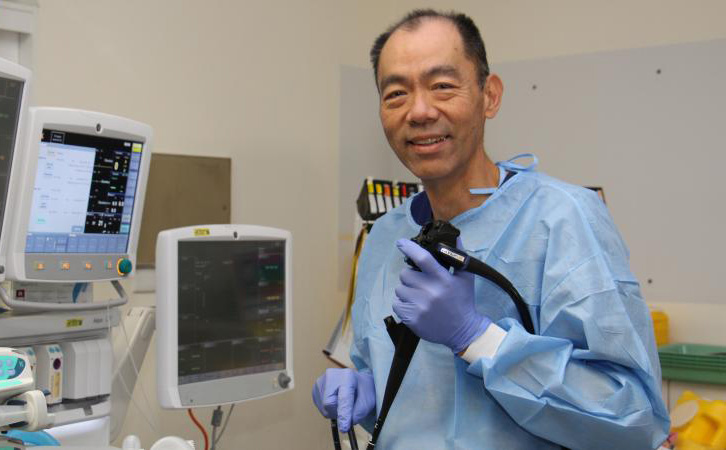June is the month to be bowel aware and prevent bowel cancer

June is Bowel Cancer Awareness month and the WA Cancer and Palliative Care Network Clinical Implementation Unit (WACPCN CIU) team who support the National Bowel Cancer Screening Program (NBCSP) in WA is reminding Western Australians to be bowel aware and for those eligible (50-74 years) to complete their bowel screening test kit.
A Commonwealth initiative, the NBCSP provides a free test kit, a faecal occult blood test (FOBT), in the mail to eligible Australians aged 50-74 years every two years. It detects invisible traces of blood in your poo, which can indicate changes in your bowel that you cannot see or feel and may need investigating. Completing the FOBT test is quick and easy.
Clinical Lead and Head of Gastroenterology at SCGH, Dr Hooi Ee, says “At this time, it’s important to continue to screen and follow-up positive test results. We recognise there is anxiety over engaging with health services following the COVID-19 restrictions; however, services are available and safe – and follow-up is essential to have the best chance of finding any changes in the bowel early, when they are treatable”.
“The NBCSP has been shown to save lives”, says Dr Ee. “Cancers detected through the NBCSP are found at a significantly earlier stage than in those who present with symptoms, thus substantially improving the chances of cure”.
“NBCSP participation in WA is around 44%, which is higher than the national average, but clearly has room for improvement,” says Kathleen O’Connor, Manager Data and Screening Strategy with the WACPCN CIU. “June is the national promotion month for the NBCSP and we encourage anyone with their kit at home to complete it. For those not yet eligible for the NBCSP, it’s important to remain bowel aware and act when things don’t feel right.”
If you are outside the target ages (50-74) it is still important to be bowel aware and act on any changes you may notice.
See your GP if you:
- have a positive result on your poo screening test or bleeding from your bottom or see blood in your poo
- notice changes in your bowel habits for more than 4 weeks
- have weight loss for no reason
- are tired for no reason
- have pain or a lump in your tummy.
View this handy flyer highlighting the symptoms to look out (PDF).
For more information on the National Bowel Cancer Screening Program visit www.cancerscreening.gov.au (external site) or call 1800 118 868.

